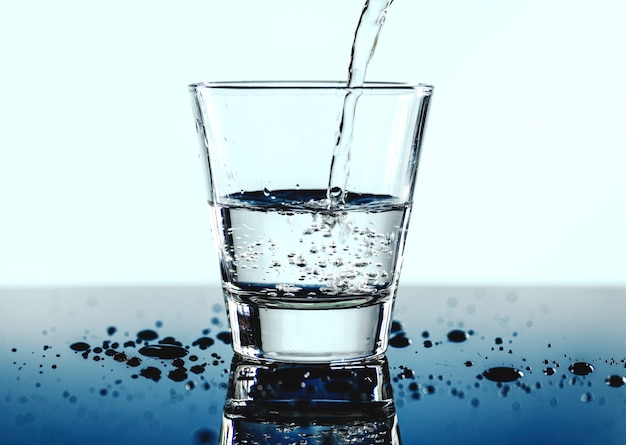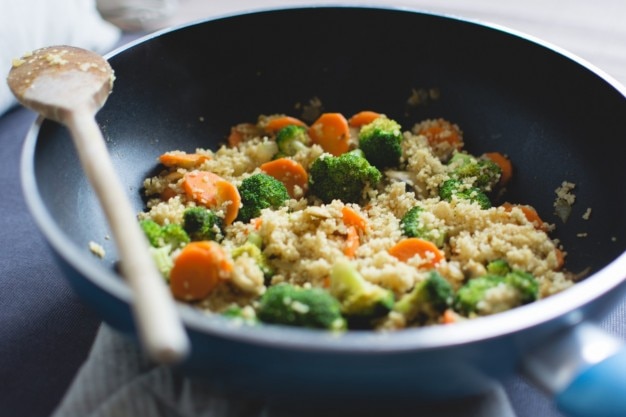Ayurvedic Dincharya (Daily Routine)
A schedule from wake up in the early morning to sleep night called Ayurvedic Dincharya. To keep yourself healthy, Ayurveda Acharya made a daily routine.
By following this daily routine, you can enhance your immunity and have a good healthy life.
As per Ayurveda, dosha is of three types, Vata, Pitta, Kapha, also known as tridosha. To stay healthy, you should keep your dosha balanced. Each dosha has their own time in a day so Ayurvedic daily routine suggests to us that which time which activity should be done.
let's understand the cycle of each day
The first cycle is sunrise to sunset
The second cycle is sunset to sunrise
A schedule from wake up in the early morning to sleep night called Ayurvedic Dincharya. To keep yourself healthy, Ayurveda Acharya made a daily routine.
By following this daily routine, you can enhance your immunity and have a good healthy life.
As per Ayurveda, dosha is of three types, Vata, Pitta, Kapha, also known as tridosha. To stay healthy, you should keep your dosha balanced. Each dosha has their own time in a day so Ayurvedic daily routine suggests to us that which time which activity should be done.
let's understand the cycle of each day
The first cycle is sunrise to sunset
The second cycle is sunset to sunrise
The doshas and their times of day
6 am to 10 am and 6 pm to 10 pm its Kapha dominating time
10 am to 2pm and 10 pm to 2 am Pitta dominating time
2pm to 6 pm and 2 am to 6 am Vata dominating time
Following these activities in your daily routine is the best way to keep yourself healthy.
Cleaning teeth
6 am to 10 am and 6 pm to 10 pm its Kapha dominating time
10 am to 2pm and 10 pm to 2 am Pitta dominating time
2pm to 6 pm and 2 am to 6 am Vata dominating time
Following these activities in your daily routine is the best way to keep yourself healthy.
Wake up
Mukh Achaman and Netra Prakshalan (washing face and eyes)
Wash your face in the morning, Ayurveda recommends splashing cold water or decoction of Amalaki on the eyes while holding water in your mouth and blink your eyes 7 times. This makes your eyes feel fresh. If the weather is winter you can avoid splashing cold water, use warm water not hot. Eyewash with Triphala is advised daily. Soak 1 teaspoon of Triphala in a glass of water overnight, strain through a clean cloth, and use it.
Drinking a glass of water. (ushapan)
- According to Ayurveda, Kapha time is 6 am to 10 am so we should try to wake up before Kapha's time starts. Kapha dosha’s energy is heavy, slow, and steady property so waking up the early morning you can get rid of this heaviness in the body and balance Kapha dosha.
- Right after waking ,look at your hand for a few moments, gently move them over your face and chest down. to see the mirror image of yourselves.
Mukh Achaman and Netra Prakshalan (washing face and eyes)
Wash your face in the morning, Ayurveda recommends splashing cold water or decoction of Amalaki on the eyes while holding water in your mouth and blink your eyes 7 times. This makes your eyes feel fresh. If the weather is winter you can avoid splashing cold water, use warm water not hot. Eyewash with Triphala is advised daily. Soak 1 teaspoon of Triphala in a glass of water overnight, strain through a clean cloth, and use it.
Drinking a glass of water. (ushapan)
In the morning drinking, warm water helps us to hydrate and flush out toxin from the body
Practice your daily hygiene
Defecation and micturition(natural urges)
Practice your daily hygiene
Defecation and micturition(natural urges)
- Perform these whenever the urge comes naturally
- Early hours of morning 2 to 6 am are ruled by vata dosha which governs elimination ,so best time to empty the bowls early morning.
- Do not inhibit or stimulate these urges
Cleaning teeth
- .Always use a soft toothbrush and an astringent, pungent, and bitter toothpaste or powder. The traditional Indian toothbrush is a neem stick. It helps to increase saliva and helps to prevent bad smell. Massage gums with herbal powder
- A toothpaste can be made from season oil mixed with fine powder of ginger,black pepper,long pepper,cardamom,triphala and rock salt
Cleaning tongue
Scrape away the coating( ama )that accumulated overnight.
Scrape away the coating( ama )that accumulated overnight.
Tounge should be cleaned by a long flexible strip made of gold, silver, copper, or wood or leaf.Its help to stimulate digestion
Nasal drop(Nasya)
- Put 1 or 2 drops of oil daily in each nostril.. this practice triggers the nerve ending and our nervous system work properly. The disease of the head and neck do not attack
- Do Nasya only when the weather is clear and there is no rainy and cloud in the sky
Oil pulling (Gandush)
Take warm oil in your mouth
Keep mouth filled with it for a while
Gargling
Hold oil or water in your mouth swish it around vigorously then spit it out. It improves circulation in the oral cavity. Strengthen the muscles of the face and jaw bone.
Chewing
- Chewing a handful of sesame seed or dried dates and after this brush your teeth again
- cavities in teeth and receding gums are signs of Vata aggravation, to prevent these problems chew a handful of black sesame seeds every morning.
- eating figs every day is also good for strengthening teeth and gums
Ear drops
If you have a problem like ringing in-ear the or poor hearing, put 2.3 drops of oil in your ears.
you can perform it daily it help to reduce Vata dosha
Abhyanga oil massage
self-massage with oil for 15 minute every day before bath ,it improve skin ,tones the muscles ..it enhances blood circulation in the whole body
Abhyanga oil massage
self-massage with oil for 15 minute every day before bath ,it improve skin ,tones the muscles ..it enhances blood circulation in the whole body
oiling head
applying oil on the head help to maintain healthy hair and scalp, prevent headache, hair loss, and greying
Exercise (Yoga and Pranayam)
Regular exercise or yoga is essential for perfect health.It can be anything including walk swim etc. It increases stamina, gives a good complexion,
Exercise (Yoga and Pranayam)
Regular exercise or yoga is essential for perfect health.It can be anything including walk swim etc. It increases stamina, gives a good complexion,
yoga is good for the spine, digestion and helps to calm the mind.
Bath
Take a bath with Luke warm water. its stimulate digestive fire , it also helps to remove fatigue, sweat, dirt,use cool water for head .
Bath
Take a bath with Luke warm water. its stimulate digestive fire , it also helps to remove fatigue, sweat, dirt,use cool water for head .
Put on clean clothing
Meditation or prayer
Meditation or prayer
After bath sit in a comfortable position with your spine straight
calm your mind and focus on mantra or prayer.
Breakfast( have breakfast around 8 am)
As its Kapha time so breakfast should be light and should be warm
LunchTime
You can have lunch between 11 to 2 pm. Its pitta Dosha time.
The best time for lunch is 12 to 1, at his time our digestive fire is at its peak.
After having lunch go for a short walk.
2 pm to 6 pm is Vata Dominating time so you can have a short nap. Remember to stay warm at this time.
Twilight zone
The special time which balances between day and night.
Time for evening prayer and meditation
Dinner
It should be taken around 7-8 pm and walk 100 steps before going to bed.
Bedtime
- Go to sleep around 10 pm
- Your head should be the east or south direction
- You can massage the sole of the feet before going to bed







Comments
Post a Comment